

 Most of us have been on both sides of it — receiving a coffee or sandwich from an employee who seems just a little too happy to serve you, or being forced to beam a smile at a rude customer who views you as merely an annoying obstacle in his busy day. The term for this coerced sunniness is “emotional labor,” as first defined by sociologist Arlie Russell Hochschild in 1983.
Most of us have been on both sides of it — receiving a coffee or sandwich from an employee who seems just a little too happy to serve you, or being forced to beam a smile at a rude customer who views you as merely an annoying obstacle in his busy day. The term for this coerced sunniness is “emotional labor,” as first defined by sociologist Arlie Russell Hochschild in 1983.
Hochschild coined the term “emotional labor” in her 1983 book, The Managed Heart: Commercialization of Human Feeling, where she described it as ”management of feeling to create a publicly observable facial and bodily display … sold for a wage.”
Midwives, psychologists and funeral home directors are expected to calm the seas of their clients’ moods, and affluent visitors of high-end boutiques and restaurants pay a healthy premium to be coddled by their employees — but should workers making little more than minimum wage be forced to smile or be fired?
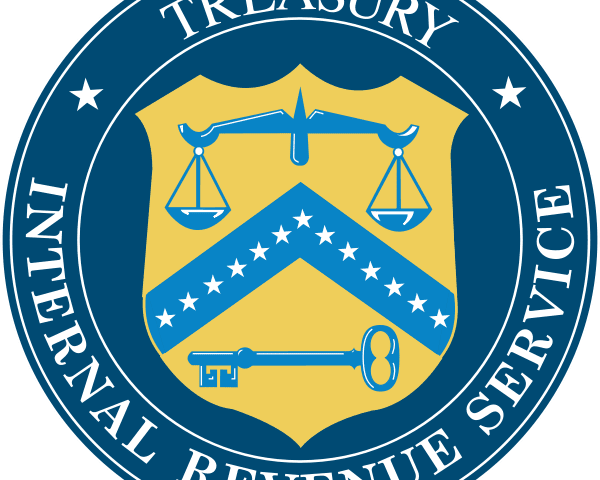

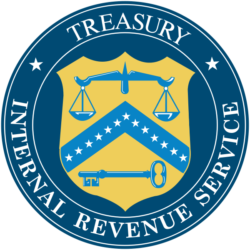 Exactly a century ago, on February 3, 1913, the 16th Amendment to the Constitution was ratified, authorizing a federal income tax. Congress turned it into a graduated tax, based on “capacity to pay.”
Exactly a century ago, on February 3, 1913, the 16th Amendment to the Constitution was ratified, authorizing a federal income tax. Congress turned it into a graduated tax, based on “capacity to pay.”
It was among the signal victories of the progressive movement — the first constitutional amendment in 40 years (the first 10 had been included in the Bill of Rights, the 11th and 12th in 1789 and 1804, and three others in consequence of the Civil War), reflecting a great political transformation in America.
The 1880s and 1890s had been the Gilded Age, the time of robber barons, when a small number controlled almost all the nation’s wealth as well as our democracy, when poverty had risen to record levels, and when it looked as though the country was destined to become a moneyed aristocracy.
But almost without warning, progressives reversed the tide. Teddy Roosevelt became president in 1901,
» Read more about: A Progressive Anniversary: The Income Tax Is 100 Years Old »


My (early) New Year’s resolution was to get a credit card. You may remember that I have never had a credit card. And thus if I were on the dating market, my OKCupid inquiries would be flatly rejected. It’s not that I have a bad score. I just don’t have one. I had a good score when I was dutifully paying off my student loan after I graduated, but then through paying dirt-cheap rent in Harlem and never paying for cable I was able to pay off the loan. Since then I haven’t owned any credit products. I’ve paid my rent on time every month and paid every bill before the due date. But those things don’t make their way over to FICO. I’ve thus landed myself in quite the Catch-22 that speaks volumes about the lending industry and our reliance on it.
When I moved into a new apartment three years ago,
» Read more about: Give Her Credit: A Writer’s Pursuit of Plastic Debt »


When the President finished his inaugural speech the other week, I said to my wife Susan, “That was a great piece of rhetoric.” By that I did not mean a lot of flowery words strung together or a piece of political discourse from a particular party’s perspective. I meant it as high praise of a public address that transcends the immediate moment and inspires us as a people to live up to our nation’s principles. This one, unlike four years ago, felt like the caliber of speeches I had studied in college in a course on Rhetoric and Public Address.
At least that is what I thought I’d heard. The President talked about the unresolved problems that face us as a nation: immigration, gun reform, deficit control, climate change, economic inequality. He placed those within the context of this nation’s founding principles: life, liberty, the pursuit of happiness. Then the President reminded us how we Americans have always acted to resolve the issues that face us: from Seneca Falls to Selma to Stonewall – three locations that struck movements to expand democracy and make the pursuit of happiness more possible for more people.
» Read more about: Walking the Talk: A Speech for All Seasons »
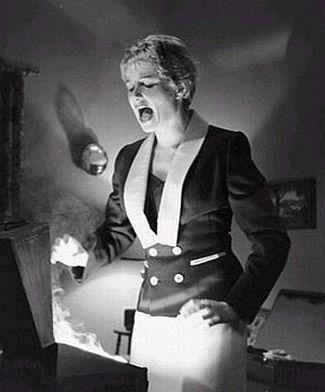
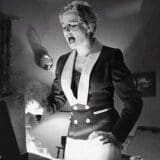
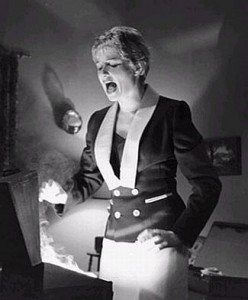 In 2012, Indiana and Michigan joined the ranks of the “right to work” states. They joined 22 other mostly Southern and Western states. All 11 Southern states are “right to work.”
In 2012, Indiana and Michigan joined the ranks of the “right to work” states. They joined 22 other mostly Southern and Western states. All 11 Southern states are “right to work.”
Unfortunately, living in a “right to work” state doesn’t mean that you have a right to work. It doesn’t even mean that you have a right not to join a union. No one ever has to join a union.
It means that you don’t have to pay for union representation in collective bargaining even when the majority of the workers in their company have democratically voted to be represented by the union.
The union still bargains for you. It helps you get a good salary, paid holidays and a health plan. Members of the union sometimes even go out on strike to make sure you get these benefits.
But when it’s time to pay the piper,
» Read more about: Right to Work Laws: Opening Pandora’s Box »


I wonder what the three mayoral candidates thought of last night, as they traveled to the third and final debate to be held in South Los Angeles before the March 5 election. Were Wendy Greuel, Jan Perry and Eric Garcetti affected by the change in scenery as they drove closer to Ward AME Church, one of the city’s historic religious institutions?
I would like to think that they clearly saw the run-down corridors, littered with liquor stores, abandoned buildings, empty lots and fast food joints. As they approached the steps of the church did these veteran public servants allow themselves to catch the eyes of that beautiful little neighborhood girl or boy who has access to fewer resources, as well as a lower probability of living a high quality life than a child from the Westside or San Fernando Valley?
Looking forward, if elected, would the high poverty rates in South Los Angeles and elsewhere keep Greuel,
» Read more about: Mayoral Candidates Forum: Debating South L.A.’s Future »
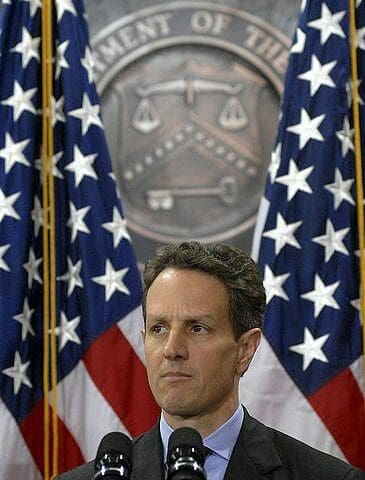

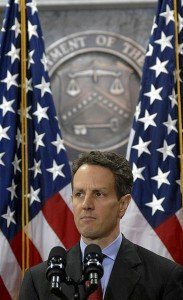 The accolades for Timothy Geithner came on so thick and heavy in the last week that it’s necessary for those of us in the reality-based community to bring the discussion back to earth. The basic facts of the matter are very straightforward. Timothy Geithner and the bailout he helped engineer saved the Wall Street banks. He did not save the economy.
The accolades for Timothy Geithner came on so thick and heavy in the last week that it’s necessary for those of us in the reality-based community to bring the discussion back to earth. The basic facts of the matter are very straightforward. Timothy Geithner and the bailout he helped engineer saved the Wall Street banks. He did not save the economy.
We can’t know exactly what would have happened if we did not have the TARP in October of 2008. We do know there was a major effort at the time to exaggerate the dangers to the financial system in order to pressure Congress to pass the TARP.
For example, Federal Reserve Board Chairman Ben Bernanke highlighted the claim that the commercial paper market was shutting down. Since most major companies finance their ongoing operations by issuing commercial paper, this raised the threat of a full-fledged economic collapse because even healthy companies would not be able to get the cash needed to pay their bills.


 Atop the list of landmark laws that conservatives have never particularly warmed to are two that established fundamental rights for workers and consumers: the 1935 National Labor Relations Act, which provided employees a legal path to form unions, and the 2010 Dodd-Frank financial reform, which established a Consumer Financial Protection Bureau to rein in banks’ abusive treatment of depositors and mortgage holders. Conservatives have never had the votes or the gumption to repeal these statutes. But now they can essentially neuter these laws.
Atop the list of landmark laws that conservatives have never particularly warmed to are two that established fundamental rights for workers and consumers: the 1935 National Labor Relations Act, which provided employees a legal path to form unions, and the 2010 Dodd-Frank financial reform, which established a Consumer Financial Protection Bureau to rein in banks’ abusive treatment of depositors and mortgage holders. Conservatives have never had the votes or the gumption to repeal these statutes. But now they can essentially neuter these laws.
[Last] Friday, three judges on the U.S. Court of Appeals for the District of Columbia Circuit — all nominated by Republican presidents — ruled that President Obama lacked the authority for three appointments he had made to the National Labor Relations Board (NLRB) during the break between Congress’s 2011 and 2012 sessions. Invoking the president’s power to make one- or two-year appointments while Congress is in recess — a power that presidents have exercised as far back as James Madison — Obama appointed two Democrats and one Republican in the face of continued Republican opposition to his previous NLRB picks. » Read more about: Court Decision Could Cripple NLRB and Consumer Bureau »
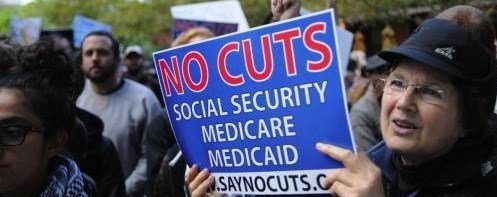
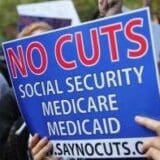
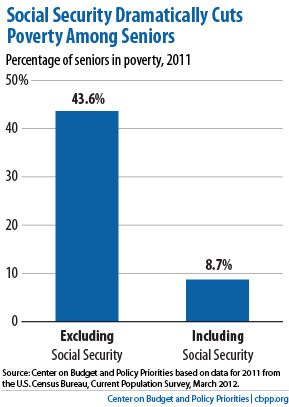 As Senator Bernie Sanders has warned, “Social Security faces an unprecedented attack from Wall Street, the Republican Party and a few Democrats. If the American people are not prepared to fight back, the dismantling of Social Security could begin in the very near future.”
As Senator Bernie Sanders has warned, “Social Security faces an unprecedented attack from Wall Street, the Republican Party and a few Democrats. If the American people are not prepared to fight back, the dismantling of Social Security could begin in the very near future.”
What exactly does the 99 Percent need to know to defend Social Security against the Wall Street One Percenters who want to profit by destroying it?
First, know our adversaries. Listen closely to the corporate-funded Heritage Foundation, headed by Tea Party hero and former Senator Jim DeMint. They want to turn part of our retirement and disability savings over to the same Wall Street firms that crashed our economy.
Heritage’s Social Security plan would
» Read more about: Wall Street’s Newest Hedge Fund: Social Security »
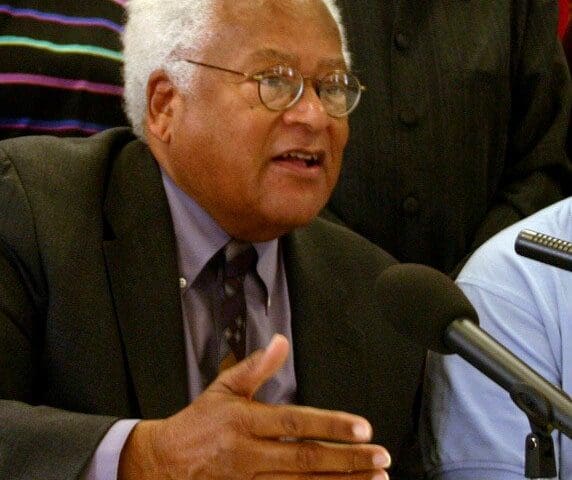
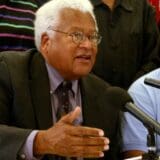
Civil rights leader Reverend James Lawson announced last Saturday that he’s planning to give himself to a new nonviolent direct action campaign with the Children’s Defense Fund, but wasn’t ready yet to discuss the details. The setting was his monthly workshop on the theory of nonviolence, where upwards of 35 people of diverse ages and backgrounds were gathered to hear Lawson present his provocative thoughts on basic human values, spirituality and the need for systemic social change.
Credited with introducing nonviolent direct action to the 1960s civil rights movement, Rev. Lawson feels the theory of nonviolence has had the equivalent impact on our understanding of the universe as Einstein’s theory of relativity. He sees the recent growth of California’s labor movement as an outgrowth of what Lawson calls “this science of social change” introduced to the state by farm worker leader Cesar Chavez in the 1960s and 70s.
Lawson was dressed last weekend in pressed khaki slacks,
» Read more about: James Lawson: Training for Nonviolence’s Next Step »